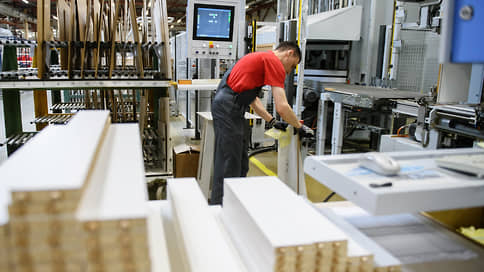Credits will be added to import substitution – Newspaper Kommersant No. 22 (7467) dated 02/07/2023
[ad_1]

The authorities continue to adapt preferential lending programs to the needs of import substitution: in 2023, banks will more often issue loans to small and medium-sized businesses for investment purposes at 2.5–4%. It follows from the approved amendments to the joint lending incentive program (LCP) of the government, the Bank of Russia and the SME Corporation that, in addition to processing, logistics and hotels, businesses in such areas as science, architecture and engineering and technical testing will be able to receive preferential loans. At the same time, the program limit will double – up to 100 billion rubles.
The Board of Directors of the SME Corporation, chaired by First Deputy Prime Minister Andrey Belousov, adjusted the terms of concessional lending programs for SMEs for 2023, adapting them to the goals of import substitution. From 50 billion to 100 billion rubles. the limit of the most attractive investment lending incentive program for SMEs has been increased, with rates of 2.5% for medium-sized and 4% for small enterprises. The low cost of such loans is ensured by the participation in the program of the government, the Central Bank and the SME Corporation. The Central Bank funds banks, and banks receive a subsidy from the Ministry of Economy for the same loan, which makes it possible to lower the final rate.
In 2022, hotels, manufacturing industries, as well as enterprises in the transportation and storage sectors could receive such a loan. 490 companies were able to attract 37.4 billion rubles. for the implementation of investment projects. These are 325 manufacturing enterprises (21.6 billion rubles), 106 logistics companies (12.1 billion rubles) and 60 hotels (3.7 billion rubles). In the new structure, such loans will also be available to enterprises in the fields of scientific and technical activities, as well as engineering and technical testing (except for developers).
Tatyana Ilyushnikova, deputy head of the Ministry of Economy, told Kommersant that the program was launched from the middle of last year in a test mode. The decision to extend and expand it was made based on feedback from businesses, information from banks and data on the implementation of the program. “Now the program will be progressively expanded to include highly skilled and high value-added industries, including IT and creative industries such as science, technology and architecture,” she explains.
General Director of SME Corporation Alexander Isayevich recalls that this year the emphasis in lending to SMEs has been placed on the creation and modernization of production facilities in order to ensure import substitution and increase employment. “Unlike working capital loans, where the rate is compensated by profit, long-term development investments are of interest to entrepreneurs only at significantly lower interest rates and longer loan terms,” he explains. To help businesses in obtaining loans, the SME Corporation is creating an investment lending support center, where businesses will be helped to “package” investment projects from 50 million rubles on a turnkey basis. and will accompany them until the loan is received.
Systemically important banks will now be able to issue money under the TPS only for investment purposes. Let us explain that there is also a second direction of the program – loans for working capital, but the rates for them are higher: for micro-enterprises – 12%, for small and medium-sized enterprises – 11.5% and 10.5% (with funding from the Central Bank and guarantees of the “SME Corporation” ). There remains a limit of 30 billion rubles for this part of the PSK, and only small, including regional, banks with a basic license will issue them. They will also be able to lend to SMEs for investment purposes.
The business extension of the program is expected to support. The head of Opora Rossii, Alexander Kalinin, believes that innovations will have a positive impact on solving the problems of import substitution. At the same time, he emphasized certain limits for small banks: “Large banks quickly absorb funds, while regional ones get them throughout the year, and the availability of loans in different regions depends on this.” Pavel Samiev, a member of the Opora Rossii presidium, speaks about the importance of doubling the PSK limit. “The former was not enough: the demand for money is large, and non-concessional loans to small businesses are often not available, since it is impossible to serve at market rates,” he notes.
[ad_2]
Source link






